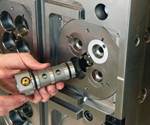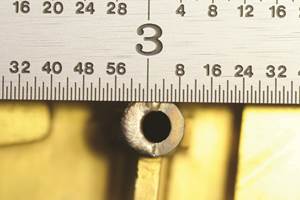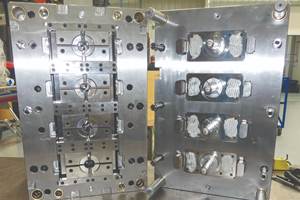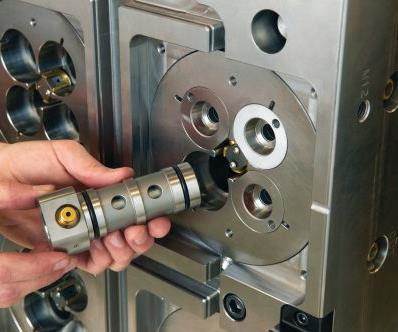In the Trenches: Thinking Outside the Box
If we train as many as we can as often as we can, we may have the privilege of nurturing someone with the right nature and see a toolmaker emerge.
One of the privileges of growing up a PK (that’s Preacher’s Kid for those of you not “in-the-know) was having exposure to many adult conversations that were not about sports or the weather.
Theology, philosophy or perhaps even politics were more likely to be fodder for thought. Not that there’s anything wrong with sports. I think football was Dad’s preferred prelude to a Sunday afternoon nap. The point being these conversations were not small talk about the obvious, they were thoughtful dialogue about meaning and interpretation. They were brain stretching exercises rather than mindless repetitions of opinion.
Especially enlightening (in terms of the larger lesson learned in retrospect) were the conversations between my dad and my uncle when they would argue opposite sides of escatology (yes, they were both preachers, go figure).
It didn’t occur to me until years later that my father agreed with my uncle, and would only argue an opposing view to strengthen his own stance. It was a method of learning for him. Furthermore, it was a discipline of thinking about any issue from a different perspective to gain insight that might not otherwise have occurred to him.
Okay, enough about my dad. What does this have to do with tool repair? The question is asked whenever hiring time comes around: “What do I want in an employee?” Particularly an employee skilled in repairing molds.
When you hire a basketball player, you want someone tall with ball control skills. When you hire a linebacker, you want someone with a huge frame and plenty of muscle who can move short distances rather quickly. These are attributes and skills that can be observed by watching someone play one game, but even at that a coach is still looking for something more. Something intangible. He wants a player that has his head in the game. Someone who has a sixth sense about where his teammates are even when they’re behind him. Someone who can anticipate the next move of the opposition. Someone who thinks strategically about the game as a whole, and isn’t just trapped in a solitary moment. The same is true of a mold repair technician.
I’m sure that anyone who has interviewed a candidate to fill a position has grappled with the difficulty of getting an accurate assessment of the intangible. In what was most likely the least professional interview of all time, this is exactly what I was doing in the first interview I ever conducted.
More from ignorance than wisdom, I engaged this particular interviewee in a two-hour conversation. I came away convinced he was someone I wanted to hire. Yes, I had a brief summary of his professed experience and capabilities, but more than that I had a good sense of his character and personality. He wasn’t trying to dazzle me with brilliance or baffle me with BS, he owned up to shortcomings and insecurities. He had nothing to brag about and nothing to hide. What I saw was what I got.
I was so convinced that I told the plant manager we needed to offer him $4 an hour more than he was making. Did I make the right decision? You bet. After more than a dozen years he is still there, and has exceeded the level and function I fulfilled when I hired him. Chalk it up to just dumb luck, but he definitely has his head in the game.
Throughout the years, I have worked with literally hundreds of machinist and toolmakers. Do I think I’m one of the best? No, only a few get to be “best,” and I have a short list of guys I still aspire to emulate. These are guys who have their heads in the game; who see the whole picture; who without thinking tackle every job in the most efficient manner; who devise ingenious set-ups for difficult machining operations; and, who understand fit & function and balance it perfectly against the constraints of time and expectations. Each of whom has risen to the top in their given environments.
On the other hand, I have seen many more who while they were capable machinists were never going to be toolmakers. They typified the T-shirt slogan: “I thought I wanted a career, turns out I just wanted a paycheck”. Some people who are dependable, responsible and conscientious qualify as “the salt of the earth,” yet are never going to be bright stars. The schooling is right, the job experience is right, all the basics are in place, but the thing you can’t put your finger on or put a number to, the intangible aspect of how they think is just not there.
Once again we come full circle to the philosophical question of Nurture versus Nature. Can intuition, thinking creatively, thinking out of side the box, big-picture thinking be taught or is it a fluke of nature that some have and others are not even aware of?
You didn’t think I was going to answer that one, did you? If Aristotle, Plato and Socrates didn’t leave us the answer, then chances are that a toolmaker from the Midwest isn’t going to come up with it either. While we wonder about the intangibles, what we do know is that training (nurture) is effective at improving skills. If we train as many as we can as often as we can, we may have the privilege of nurturing someone with the right nature and see a toolmaker emerge.
Related Content
What is Scientific Maintenance? Part 2
Part two of this three-part series explains specific data that toolrooms must collect, analyze and use to truly advance to a scientific maintenance culture where you can measure real data and drive decisions.
Read MoreLaser Welding Versus Micro Welding
The latest battle in finely detailed restoration/repair of mold materials.
Read MorePrecision Welding Services Offer Rapid Turnaround Mold Repair and Reduced Molder Downtime
X-Cell Tool & Mold relies on outsourced, high-quality welding repairs from Lewis-Bawol Welding to ensure its customers' molds are back in production quickly and affordably.
Read MoreRead Next
In the Trenches: Mold Repair
In this multi-part series of articles, contributer James Bourne, a tool repair supervisor and freelance writer, shares his own personal struggles in the business, as well as lessons learned and tricks of the trade garnered along the way.
Read MoreHow to Use Strategic Planning Tools, Data to Manage the Human Side of Business
Q&A with Marion Wells, MMT EAB member and founder of Human Asset Management.
Read MoreHow to Use Continuing Education to Remain Competitive in Moldmaking
Continued training helps moldmakers make tooling decisions and properly use the latest cutting tool to efficiently machine high-quality molds.
Read More












_300x250 1.png;maxWidth=300;quality=90)
.jpg;maxWidth=300;quality=90)






.png;maxWidth=300;quality=90)








